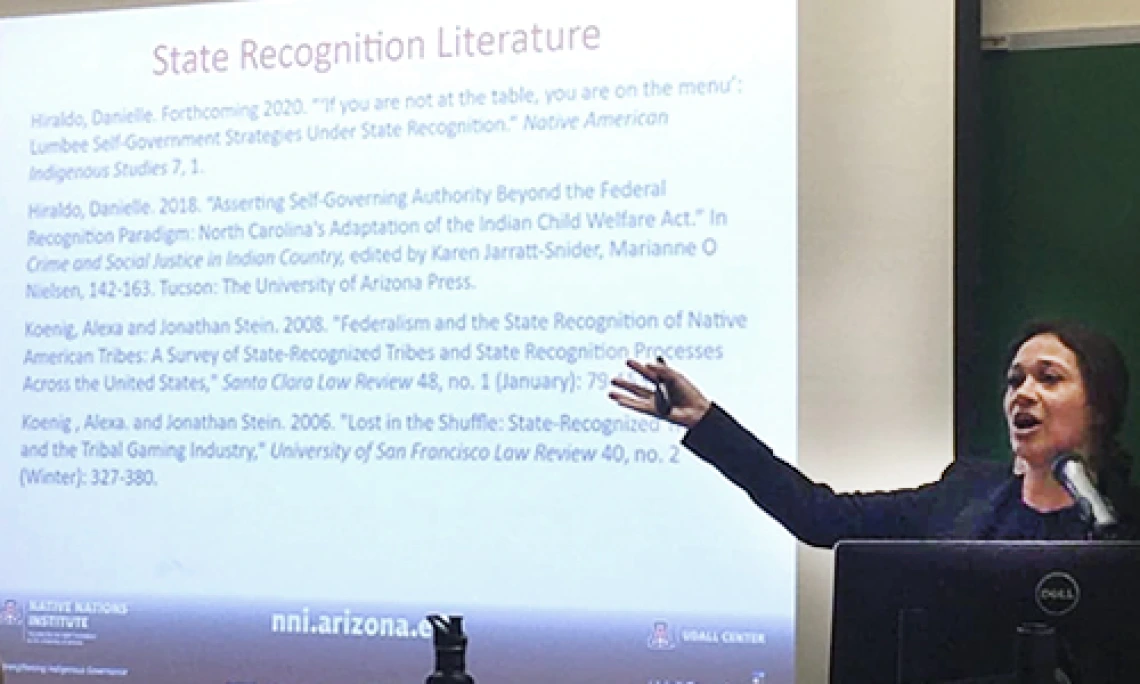NNI Research Highlights How State-Recognized Tribes are Exerting Their Sovereignty

Native Nation Institute (NNI) researchers Danielle Hiraldo (Lumbee Tribe of North Carolina), Mary Beth Jäger (Citizen Potawatomi), and Student Data Manager Kyra James (Navajo Nation, Diné) presented at The National Economic Association (NEA) and the American Society of Hispanic Economists (ASHE) sixth annual summer conference: Freedom and Justice: Community and Nation Building hosted by the University of New Mexico, Albuquerque on August 8-10, 2019. NEA notes that "The Freedom and Justice Conference is an interdisciplinary social justice conference that attracts a small group of scholars who are dedicated to discussing pressing economic problems and their solutions for communities of color." Congresswoman Deb Haaland (Pueblo of Laguna), representing the 1st District of New Mexico, was the keynote speaker.
Hiraldo, Jäger, and James presented preliminary research findings titled Identifying how Southeastern State Recognized Tribes Advance Rights as part of the Indigenous Communities panel. Their work demonstrates how tribes without recognition of certain rights govern through local and state relationships. These tribes are asserting their political authority, and as a result, states are recognizing their rights through legislation. Hiraldo shared, "This presentation provided a general landscape of legislation found within the Southeast. By first surveying what exists in a small region of the U.S., we feel that we can determine how to develop a larger research project. We saw our participation at this conference as an opportunity for feedback as we continue to develop our dataset and framework." NNI's work with state-recognized tribes is a burgeoning area of research that highlights how Native nations continue to engage in nation building.
Image: Danielle Hiraldo

